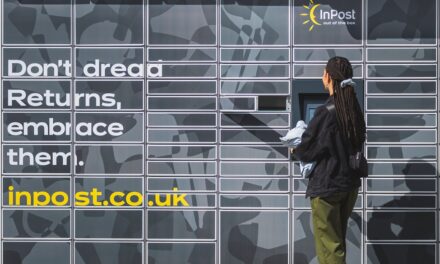
Business Post announces its preliminary results for the year ended 31 March 2003
For PowerPoint slides of the Results presentation by Paul Carvell, Chief Executive and Peter Fitzwilliam, Finance Director, click here.
Please note: the presentation will take about 30 seconds to load.
Highlights
"Further good progress expected in current year"
Business Post, one of the UK's leading express delivery companies, announces a successful first year's implementation of the three year plan which was set out in November 2001.
Peter Kane, Chairman, stated that "The principal features of the year have been the creation of a new business unit structure; significant levels of investment in the franchise network, training and customer service; and the acquisition of BXT, a specialist technical courier. Despite unhelpful economic conditions, the results of these actions have been gains in market share in each of the sectors in which we operate, and further improvements in turnover, profit and dividends."
2003 2002 Increase
Turnover (£m) 156.3 131.7 18.7%
Operating profit (£m) 15.6 14.6 6.8%
Pre-tax profit (£m) 16.1 15.1 6.6%
Earnings per share (p) 21.2 20.0 6.0%
Dividends per share (p) 16.9 16.0 5.6%
Express, the Group's core UK business-to-business parcel service, increased its turnover by 14% to £123.8m in a market estimated to have increased only marginally. As a result, the directors believe that Express has improved its market share to 7%.
The Group's newer and smaller operating business units, International, HomeServe (UK business-to-consumer parcels) and UK Today (UK nationwide same-day courier) all made good progress, but UK Mail (the Group's proposed UK business mail service) did not trade.
Referring to current trading and prospects, Peter Kane said "Trading in the first seven weeks of the new financial year has been encouraging, with both volumes and yields ahead of the equivalent period last year. With additional market share gains anticipated as a result of continued high quality delivery performance and a targeted sales approach, the Board expects further good progress in the current year. The Board remains very confident about the Group's long-term potential."
Go to top
Chairman's Statement
I am pleased to report a successful first year's implementation of the three year plan that we set out in November 2001.
The principal features of the year have been the creation of a new business unit structure; significant levels of investment in the franchise network, training and customer service; and the acquisition of BXT, a specialist technical courier.
Despite unhelpful economic conditions, the results of these actions have been gains in market share in each of the sectors in which we operate, and further improvements in turnover, profit and dividends. The Board remains very confident about the Group's long-term potential.
Financial Review
The financial results for the year ended 31 March 2003 reflect the investment phase of our three year plan. Turnover increased by 18.7% to £156.3m (2002: £131.7m), with increases in all four operational business units whilst, as expected, the gross profit margin declined, to 21.9% (2002: 24.0%). Operating profit advanced by 6.8% to £15.6m (2002: £14.6m), representing an operating margin of 10.0% (2002: 11.1%). After unchanged net interest receivable of £0.5m, pre-tax profit was 6.6% better at £16.1m (2002: £15.1m), with earnings per share 6.0% higher at 21.2p (2002: 20.0p).
Cash flow before dividends amounted to £3.5m (2002: £8.7m) after the acquisition of BXT (£1.9m), capital expenditure of £4.3m (2002: £3.6m) and working capital outflows to support the expansion of the business of £4.7m (2002: £2.3m). Year-end debtor days again reduced, from 51 to 48, and the balance sheet remains strong, with net cash of £1.6m (2002: £6.7m).
Dividend
A final dividend per share of 11.3p (2002: 10.7p), up 5.6%, is proposed, payable on 24 July 2003 to shareholders on the register at close of business on 27 June 2003. The ex-dividend date is 25 June 2003.
Together with the interim dividend per share of 5.6p (2002: 5.3p), dividends per share are 5.6% higher at 16.9p (2002: 16.0p), covered 1.25x (2002: 1.25x) by EPS.
Business Review
Express
Express, which accounted for 79% (2002: 82%) of Group turnover, is the Group's core UK business-to-business parcel service. It specialises in next-day deliveries for those customers who need a consistent and reliable service backed up by sophisticated information systems, thereby differentiating itself from high volume/low price operators.
In the year, Express increased its turnover by 14%, to £123.8m from £108.4m, in a market estimated to have increased only marginally. As a result, the directors believe that Express has improved its market share from 6% to 7%.
The strong revenue growth reflects the improved quality of delivery performance which has assisted new business wins and further reduced customer churn. The improving level of customer demand across the year allowed Express to implement a number of pricing initiatives which have progressively improved yield, and an objective for the current year is to improve further the quality of revenue. This will be achieved through targeted sales and marketing initiatives aimed at customers who are higher users of premium services, and a review of less profitable accounts.
International
International, which accounted for 12% (2002: 9%) of Group turnover, is responsible for all shipments coming into and leaving the UK and the Republic of Ireland and is primarily a business-to-business service. A high proportion of its activity derives from Business Post's agreement with FedEx, the world's largest express transportation company, as its Global Service Participant in the UK. Under this contract, which commenced in September 2001, Business Post is responsible for collecting and delivering parcels for FedEx customers in those areas of the UK not directly served by FedEx. Additionally, International handles road-based shipments within Europe, working with a number of partners in the EU countries, and offers a full outbound Air Express service utilising the worldwide FedEx delivery network.
Much of the turnover increase, to £18.2m from £12.1m, results from the full year contribution from the FedEx relationship, which continues to work well, with very high delivery performance. In addition, the International product offerings were overhauled, tariffs simplified and new products introduced. In particular, International Mail was launched in July 2002, offering business customers an alternative to Royal Mail for their overseas postal requirements, and this has developed satisfactorily during the year. In the current year, a European single pack network is being developed to complement the existing road services for heavier weight consignments, and this should be operational in the summer of 2003.
With the market estimated to be worth approximately £1 billion, International has considerable scope for growth.
HomeServe
HomeServe, which accounted for 5% (2002: 6%) of Group turnover, is the Group's UK business-to-consumer parcel service, providing a high quality next day service to residential addresses, with full proof of delivery and track-and-trace facilities.
Trading comparisons with the prior year are affected by the loss through administration in January 2002 of HomeServe's previous biggest customer, Tiny Computers. Turnover growth of 10%, from £6.9m to £7.6m, reflects an underlying growth of 130% if Tiny is excluded.
This excellent performance reflects a growing market and a targeted sales approach, concentrating on the upper end of the market (estimated to be worth some £200m) which is both suitable for caged transportation and requires a high quality delivery performance, including IT solutions.
In order to provide customers and the ultimate recipients of delivery more choice and greater flexibility, a range of new products is being introduced. These allow items to be left in a designated safe location, an alternative address, or one of 3,200 secure drop-off points, principally retail garages and convenience stores.
UK Today
UK Today, which accounted for 3% (2002: 1%) of Group turnover, is the Group's UK nationwide same-day courier service. It operates out of both corporate and franchised depots, uses separate delivery vehicles, and has access to the National Express coach network linking 1,200 locations each day.
In the year, UK Today extended its operations from six to 24 Group depots and increased its turnover by 165% from £1.7m to £4.5m. A further five sites are planned for the current year and, with national coverage, allows UK Today to target national contracts in a market estimated at £300m where there are few national operators.
UK Today is proving to be a good source of referral work for the Group's other services and several new business wins have been achieved in Express and HomeServe from customers impressed by UK Today's performance.
To complement UK Today's services for ad hoc business customers, BXT Limited was acquired at the end of February 2003 – Business Post's first acquisition since flotation in 1993. BXT is a Birmingham-based technical courier with a focused customer base for whom services are supplied under contract. In the year ended 31 July 2002, BXT achieved turnover of £4.3m and pre-tax profits of £0.3m. The consideration was £1.9m, net of cash acquired. BXT is settling in well. Plans for the coming year include leveraging the customer bases to develop cross-selling opportunities, and winning more contracts in its existing technical, medical and utility sectors.
UK Mail
UK Mail proposes to offer a business mail service in the UK under its licence from Postcomm, the independent postal industry regulator. This allows it to collect mail from business customers and undertake the initial sorting and trunking before delivery to the relevant Royal Mail delivery location, for local sorting and final delivery.
UK Mail did not trade in the year. After extensive negotiations with Royal Mail failed to reach an agreement, in April 2002 UK Mail asked Postcomm to determine a tariff for access to Royal Mail's delivery network. That proposed determination has only recently been received and will be followed by a period of public consultation. The progress towards commencing the service has been frustratingly slow, for reasons outside the Group's control. However, costs (£0.4m) have been kept to a minimum.
With the UK market for business mail estimated to be worth some £5bn, this continues to represent a substantial and exciting opportunity. However, no contribution to profit should be assumed for the current financial year.
Network Services
Network Services is responsible for providing high quality collection and delivery services to the Group's business units at a low unit cost. Across the year, a tight control over costs was maintained, with particular focus on reducing the use of third party labour and the level of insurance claims. In addition, the first phase of a change in overnight linehaul arrangements was implemented, to reduce the number of vehicle movements and improve operational efficiencies. The principal element of this project is the introduction of double-decked trailers, and capital expenditure of £0.9m was incurred during the year as part of this process. A further £1.3m will be spent in the current year as the next stages of the project are implemented.
An integral part of Network Services is represented by Business Post's franchised depots, which provide a high quality local service and entrepreneurial spirit. As indicated previously, further investment has been made in the franchise network during the year through increased payments and loans introduced from 1 April 2002. This investment, to finance expansion and generate improved sales growth and stability within the franchise network, is already bearing fruit.
Relationships with franchisees have been strengthened through the creation of a Franchise Board of Management, involved in the selection of new franchisees and discussing issues of common interest. In addition, a share option scheme was introduced in the summer of 2002 to enable franchisees to share in the broader success of Business Post and to align more closely their interests to those of Business Post's shareholders.
In addition to providing collection and delivery services to the Group's business units, Network Services is also responsible for customer service. During the year, a new customer relationship management system, Discovery, was introduced and the level of staff training was significantly increased. These investments are already evident in the improving level of customer demand and further investments will be made in the current year.
Personnel
The achievements of the year reflect considerable credit on the senior management team, under the leadership of Paul Carvell, and demonstrate the initial success of the Group's Three Year Plan announced in November 2001. In particular, the strong growth reflects the greater focus resulting from having separate business units, each with its own dedicated team led by a specialist managing director.
To all the Group's staff and associates who are involved in the owned and franchised depots, I extend my thanks on behalf of all shareholders.
Current Trading and Prospects
Trading in the first seven weeks of the new financial year has been encouraging, with both volumes and yields ahead of the equivalent period last year. With additional market share gains anticipated as a result of continued high quality delivery performance and a targeted sales approach, the Board expects further good progress in the current year.
The Board remains very confident about the Group's long-term potential.
Peter Kane
Chairman
Go to top
Consolidated Profit & Loss Account
for the year ended 31 March 2003
Unaudited
2003
£m
Audited
2002
£m
Turnover 156.3 131.7
Cost of sales (122.1) (100.1)
——————————————————————————–
——————————————————————————–
Gross profit 34.2 31.6
Administrative expenses (18.6) (17.0)
——————————————————————————–
——————————————————————————–
Operating profit 15.6 14.6
Interest receivable 0.5 0.5
——————————————————————————–
——————————————————————————–
Profit on ordinary activities before taxation 16.1 15.1
Taxation (4.9) (4.5)
——————————————————————————–
——————————————————————————–
Profit for the financial year 11.2 10.6
Dividends (9.0) (8.5)
——————————————————————————–
——————————————————————————–
Retained profit transferred to reserves 2.2 2.1
——————————————————————————–
——————————————————————————–
Earnings per share – basic 21.2p 20.0p
——————————————————————————–
——————————————————————————–
Earnings per share – diluted 21.2p 20.0p
——————————————————————————–
——————————————————————————–
Dividends per share 16.9p 16.0p
——————————————————————————–
——————————————————————————–
The profit for the financial year is derived from continuing activities and includes all recognised gains and losses for the year.
Go to top
Consolidated Balance Sheet
at 31 March 2003
Unaudited
2003
£m
Audited
2002
£m
Fixed assets
Intangible assets 1.7 –
Tangible assets 30.4 29.5
Investments 0.1 0.1
——————————————————————————–
——————————————————————————–
32.2 29.6
——————————————————————————–
——————————————————————————–
Current assets
Debtors 34.9 25.9
Cash 1.6 6.7
——————————————————————————–
——————————————————————————–
36.5 32.6
——————————————————————————–
——————————————————————————–
Creditors
Amounts falling due within one year (21.9) (17.8)
——————————————————————————–
——————————————————————————–
Net current assets 14.5 14.8
——————————————————————————–
——————————————————————————–
Total assets less current liabilities 46.8 44.4
Provisions for liabilities and charges (1.0) (1.0)
——————————————————————————–
——————————————————————————–
Provisions for liabilities and charges (1.0) (1.0)
——————————————————————————–
——————————————————————————–
Net assets 45.8 43.4
——————————————————————————–
——————————————————————————–
Capital and reserves
Called up share capital 5.3 5.3
Share premium account 9.9 9.7
Profit and loss account 30.6 28.4
——————————————————————————–
——————————————————————————–
Equity shareholders' funds 45.8 43.4
——————————————————————————–
——————————————————————————–
Go to top
Consolidated Cash Flow Summary
for the year ended 31 March 2003
£m Unaudited
2003
£m
£m
Audited
2002
£m
Operating profit 15.6 14.6
Depreciation/loss on sale of fixed assets 3.3 3.6
Increase in amounts due from franchisees (0.5) (3.4)
Increase in other debtors (5.5) (2.2)
Increase/(decrease) in other creditors and provisions 0.8 (0.1)
——————————————————————————–
——————————————————————————–
——————————————————————————–
Net cash inflow from operating activities 13.7 15.9
Returns on investment
Interest received 0.5 0.4
Tax paid (4.9) (4.3)
Capital expenditure and financial investment
Purchase of fixed assets (4.3) (3.6)
Proceeds from sale of fixed assets 0.2 0.3
Acquisition of subsidiary (1.9) –
——————————————————————————–
——————————————————————————–
(6.0) (3.3)
Equity dividends paid (8.6) (8.2)
——————————————————————————–
——————————————————————————–
Net cash (outflow)/ inflow before financing (5.3) 0.5
Financing
Issue of ordinary share capital 0.2 –
——————————————————————————–
——————————————————————————–
(Decrease)/increase in cash (5.1) (0.5)
——————————————————————————–
——————————————————————————–
Notes
The financial information set out above does not constitute the Company's statutory accounts within the meaning of Section 240 of the Companies Act 1985. The statutory accounts of the Company for the year ended 31 March 2002 have been delivered to the Registrar of Companies. The auditors' report on those accounts was unqualified and did not contain any statements under Section 237(2) or (3) of the Companies Act 1985.
The financial information for the year ended 31 March 2003 is unaudited. This information has been prepared using the same accounting policies as in the 31 March 2002 statutory accounts and, once finalised, the accounts will be delivered to the Registrar of Companies following the Annual General Meeting on 10 July 2003.
Basic earnings per share have been calculated by dividing the profit for the financial year by the weighted average number of ordinary shares in issue for the year ended 31 March 2003 of 53,048,564 (2002: 53,012,798). Diluted earnings per share have been calculated by adjusting the weighted average number of ordinary shares for the effect of the exercise of share options, increasing the number of shares to 53,115,478 (2002: 53,041,201).













